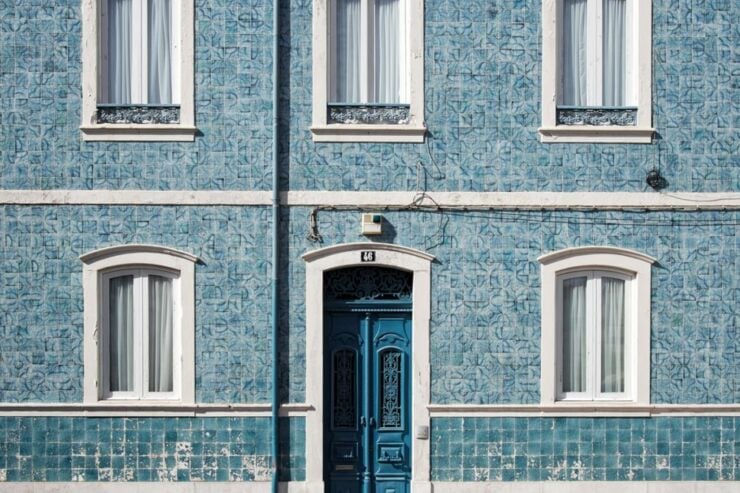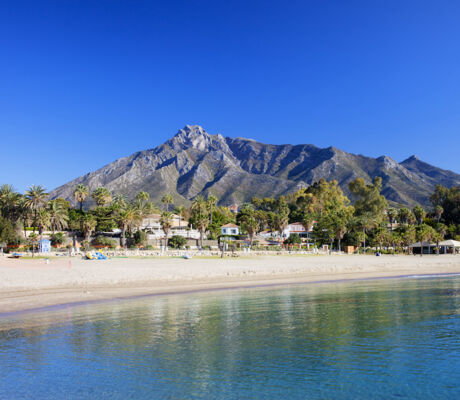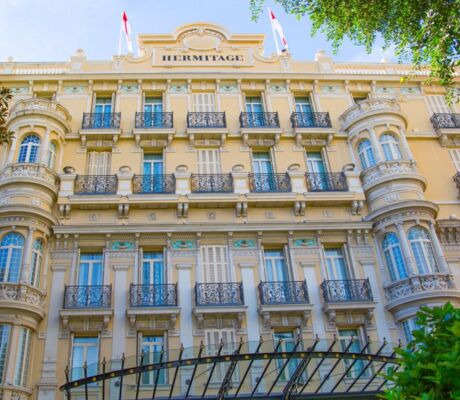If you look back to the US mortgage crisis of 2008/9, the impact of which is still being felt today, Portugal was one of the more troubled EU economies. Unemployment jumped significantly, economic performance flatlined and there was huge pressure on the Portuguese government to introduce austerity. At that point, the short to medium-term prospects for Portugal seemed challenging at best. Fast forward to 2019 and the performance has been far better than even the most optimistic observers could have hoped for.
As with the vast majority of developed countries, property has been at the forefront of the resurgence in the Portuguese economy. It is fair to say the actions taken by the Portuguese government a decade ago are still having an extremely positive impact today.
Portugal property market
Before we take a look at the current trends in the Portugal property market it is worth reminding ourselves of the very impressive recovery in the Portuguese economy. The country has rebounded significantly from the repeated lows of 2009 and 2012 and is now outperforming the average Eurozone member. For example, the chart below shows the percentage GDP growth compared to the previous year.
Another useful indicator of the Portuguese economy is the level of government debt which spiralled after the 2008/9 mortgage crisis. While the country has undergone a period of significant austerity, together with a general increase in domestic taxation, government debt is only now beginning to fall which highlights the long-term nature of government financial policies.
Against this backdrop of improvement in GDP and an ongoing reduction in government debt, it will be no surprise to learn that the rate of unemployment in Portugal has reduced significantly. As you will see from the graph below, the rate peaked at nearly 18% back in 2013 and is now down to just over 6%. We also know that the younger population made up the vast majority of unemployed back in 2013 although thankfully this trend is changing.
There is no doubt that an improvement in the economy, government debt and unemployment have assisted with the strength of the Portugal property market. However, there are also other factors to take into consideration.
Golden visa
In 2012, in the midst of a worldwide economic downturn and huge pressure on property prices, the Portuguese government decided to introduce what became known as the “golden visa”. In effect this entitled non-EU/EEA citizens to a special residence permit in exchange for a five-year investment in Portugal (a minimum €500,000 investment in property). Applicants were also entitled to free movement around the EU and the option to apply for Portuguese citizenship after a six-year period. We know from official data that this led to an additional €4.8 billion being invested into Portugal between 2012 and 2019. Of this, a staggering €4.3 billion went into the Portuguese property market and helped to at least maintain prices during what was an extremely difficult period.
While many were critical of the Portuguese government for the introduction of golden visas, amid suggestions this was artificial support for the property market, they were not the only EU member government to do so. Spain, Cyprus, Greece, Malta and Ireland introduced their own versions of the golden visa program to varying degrees of success. This also led to huge investment in some of Portugal’s ancient buildings many of which were crumbling and an injection of capital into the Portugal new build market. Aside from the obvious benefits to the Portugal property market (especially at the higher end) this gave a huge boost to local economies and the national economy as a whole.
Tax incentives
At the same time as introducing the golden visa, the Portuguese government also announced a non-habitual tax resident scheme. This was used as a means of attracting skilled workers to Portugal, often on large salaries, to help support the economy and investment in the country. The main elements of the scheme meant that many highly skilled professionals paid only a flat 20% on their Portuguese income with their foreign income not taken into consideration for 10 years.
As you can imagine, the tax incentive and introduction of the golden visa proved to be extremely popular amongst wealthy individuals often outside of Europe. Investors from the likes of China, Russia and an array of other historically restrictive countries have arrived in Portugal in significant numbers since 2012. As many of them are extremely wealthy this has led to growing demand for not only existing luxury properties but also new developments.
Foreign investment
As we touched on above, property investment as a consequence of the golden visa scheme hit a staggering €4.3 billion between 2012 and 2019. That is not to say none of this money would have made its way to Portugal without the visa but it certainly attracted a significant percentage.
If we take a look at the general property market in Portugal, you will see the quarter by quarter performance since 2008 listed below. It was only towards the end of 2010 that we started to see a significant reduction in property prices not only in Portugal but across Europe and the developed world. Even the introduction of the golden visa and tax benefits for foreign investors, introduced in 2012, did not really start to have an impact until 2013.
Portugal is seen as one of Europe’s more dynamic property market at this moment in time. The attractions for high net worth individuals looking to acquire highly priced properties are there for all to see. Recently the government confirmed that the tax incentives/visas for foreign investors will remain for the foreseeable future. This despite concerns it is having a significant impact on the middle to the higher end of the Portugal property market.
As you will see from the performance of Portuguese property in the first three months of 2019, the sector is currently head and shoulders above the euro area average and the likes of Spain, Luxembourg, Germany and the UK. This level of growth is obviously unsustainable but many experts are still forecasting significant growth in the short to medium term. There are obvious potential blights on the economic horizon such as Brexit and the uncertainty this matter has created.
One of the common criticisms is the purchase of Portuguese property by foreign investors, to receive the tax/visa benefits, while not spending a significant amount of time in the country. Indeed, there is evidence to suggest a significant increase in the use of short-term rental companies such as Airbnb which has pushed up local rental and property prices. A 9.2% increase in Portuguese property prices in the first quarter of 2019 is impressive and perfectly illustrates the buoyant market at the moment. However, how do Portuguese property prices compare to their international counterparts?
Figures from the Deloitte 2019 property index show that Lisbon is on a par with Rome but still behind Madrid, Berlin, Amsterdam, London and Paris when it comes to the cost of property per square metre. Even though we are likely to see further improvement in the Lisbon figures in 2019, this luxury market will still trail many of its Euro counterparts.
While there is no doubt that the withdrawal of visa/tax benefits for foreign investors in Portugal would have an impact on the market, this may be less than many people might expect. The huge investment into Portugal real estate since 2012 has had a significant impact on many areas of the country, especially the luxury end of the market.
Let’s not forget, this is an area of the world which has always been extremely popular with expats, especially those from the UK. Even in light of Brexit, and short to medium term reduced demand from UK investors, there has been significant interest amongst other foreign nationals. A recent report confirmed that French buyers were leading the way, followed by British, Swiss, Germans and Brazilians. At this moment in time many experts believe that the Portuguese property market will continue to rise in the short to medium term albeit at a reduced rate. This was reflected by the third quarter property price rise of just 2.5%, the smallest in 2019. The fact that sales figures increased by 16.6% in 2018, with further improvement expected throughout 2019, would seem to suggest a strong backbone of support for property in the region.
Mortgage market
When looking at European mortgage markets it is worth reminding ourselves that the UK has one of the most liquid mortgage markets in the world. As a consequence, other European countries do not compare favourably although it has to be said that Portugal is one of the better ones. We know that UK expats have been particularly fond of Portuguese property in years gone by prompting a fluid expat mortgage market. Even though Brexit has curtailed demand from UK investors in the short term many expect UK investors to return in due course.
Portuguese banks currently offer between 60% and 70% LTV and tend to work on margins of between 1.7% and 2.5% depending upon the borrower’s specific financial situation. However, the vast majority of high net worth individuals looking to take advantage of the favourable climate within the Portuguese property sector often require bespoke arrangements.
As we have contacts with more than 300 international lenders, taking in traditional banks, private banks and niche lenders, we always have a number of options to hand. We are therefore able to secure funding for many high net worth individuals via UK/International private banks and niche lenders. They are able to structure mortgage funding around the client’s specific scenario, taking into account assets, cash flow and potentially assets under management. This ensures maximum competition when seeking funding, leading to attractive rates and terms which dovetail with a client’s specific situation.
Summary
While perhaps unfair to compare the Portuguese mortgage market to an extremely liquid UK market, it does fare better than many others in the European Union. Brexit has seen many UK investors reassessing their short to medium term priorities and a drop-off in UK investor activity in Portuguese property. Interestingly, much of this shortfall has already been made up by foreign investors from the likes of Russia and China looking to take advantage of the Portuguese golden visa.
It is fair to say that Portugal has risen from the depths of despair to become one of the stronger economies and property markets in Europe. The impact of the golden visa and preferential tax treatment for overseas residents has had an impact on property prices in Portugal. Due to the significant investment required to qualify for this preferential treatment, much of the multibillion euro investment has found its way towards the higher end of the market. The expat mortgage market is growing, international banks are increasing their exposure to the Portuguese property market and the economy of Portugal is one of the more buoyant across Europe.
Even though the rate of growth in both property prices and the economy of Portugal are likely to consolidate after huge gains, many experts are still positive about the short, medium and long-term outlook for real estate in Portugal.





